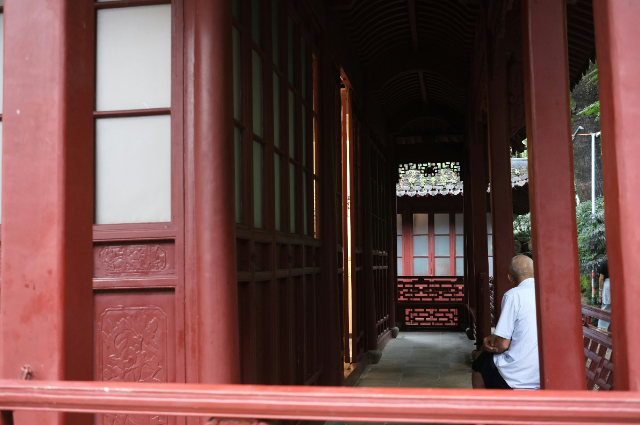
The First Visit Back
It always starts the same way. You get excited, counting down the days to go back home. You picture your mom’s cooking, your bed, and the chaos that somehow always felt safe. But when you finally step inside, something feels… off. Not wrong, just different. The air feels heavier. The silence feels strange. Your room doesn’t look the same; maybe your favorite poster is gone, or the curtains are new. Your mom smiles and says, “We thought this looked better.” You smile back, but deep down, it feels like a small piece of your old self has disappeared.
I once saw a girl post on Instagram, “After six months, I came home and my room was just full of random stuff. It hit me that I don’t really live there anymore, I just visit.” That stayed with me because it’s true. Growing up quietly turns your safe home into a place you barely recognize. Like walking into someone else’s story.
Time Doesn’t Wait
You think everything will stay the same while you’re gone, but life doesn’t pause. Your parents have new routines. Your sister sits in your old spot. Even the street dog doesn’t rush to you anymore.
At dinner, they talk about people and things you don’t know, new neighbors, new gossip, new rhythms. You laugh along, but it hurts a little. You’re home, but you don’t really fit anymore. While you were out building your own life, theirs kept going too. And that hurts not because they forgot you, but because you’re no longer part of their everyday. Someone on Reddit wrote, “The hardest part about growing up isn’t leaving home; it’s realizing life at home kept going without you.” That one line captures it perfectly.
The Quiet Distance
No one talks about the quiet distance that comes after growing up. You still love your parents, maybe even more, but the connection feels different. Conversations don’t last as long. You don’t tell them everything anymore, not because you don’t want to, but because you’ve both changed.
They slowed down. You sped up. And it’s easier to just say, “I’m fine,” instead of trying to explain. There’s no fight or resentment. Just two versions of love exist at different speeds. Like one of those quotes I came across: “I love my parents, but I can’t live there anymore. I don’t belong to that home.” It’s not rejection, it’s just growth.
The Weight of Independence
Remember how badly you wanted to move out and have your own life? You finally did, and it wasn’t easy. You had to handle everything yourself: bills, loneliness, quiet meals, unexpected breakdowns.
You became independent and strong, but somewhere along the way, you lost the softness that home used to bring. Now, when you go back, the silence feels heavier than peaceful. You start missing your little routines, your playlists, your midnight Maggi, the comfort of your own space. It’s not that you stopped loving home, but you built a new one that fits who you are now.
When Familiar Feels Foreign
It’s unsettling when your hometown starts feeling unfamiliar. Your friends moved away. The café you loved closed down. Even your street feels like it belongs to someone else. You recognize everything, but nothing feels like yours anymore. Online, people often say, “Home doesn’t feel like home anymore,” and so many reply “, Same.” Because it’s something we all go through, that quiet, shared ache of realizing time changes not just places, but us too. Maybe growing up is just learning how to live with that distance.
Redefining Home
Maybe home isn’t supposed to stay the same forever. Maybe it changes with us. Maybe home is a friend texting, “Call me when you reach safe.”Maybe it’s your rented room that smells like coffee. Maybe it’s the bus ride where you finally feel calm again. Maybe it’s your favorite playlist that seems to understand you better than anyone. Home doesn’t have to be four walls anymore.
Sometimes it’s a feeling, a person, or a moment.
Acceptance
You’ll always miss what home was: the smells, the laughter, the noise, the warmth that once made you feel safe. But one day, when you visit again, it won’t hurt anymore. You’ll walk in, look around, and feel something softer, gratitude. You’ll notice how much those walls gave you, how they held your tears, your dreams, your mistakes, and your childhood. You’ll hug your parents a little tighter, not to hold on, but to say thank you.
Because even when home changes, it never really leaves you.
It just moves into your habits, your kindness, your resilience. Into the way you comfort someone else. You realize home isn’t a single place anymore. It’s something you carry in your memories, in the people who make you feel seen, and most of all, in yourself.
So yes, the house may look different, and you may too. But the love that built you never fades. It simply learns to live in new forms.
And one day, when you walk through that door again, it won’t feel strange; it’ll feel like coming home, just in a different way.
References
- Instagram reel: “home doesn’t feel like home anymore, but you get used to it… Give yourself some time.”, posted by user imnnancy (Oct 23, 2025) https://www.instagram.com
- Instagram reel: “When Some Returns Don’t Feel Like Home Anymore”, a personal reflection of feeling displaced https://www.instagram.com
- Reddit thread: “Does anyone else feel sad/dread when leaving home and parents?” (user shares “When I was 31… I realized after I left the house it just wasn’t the same.” https://www.reddit.com
- Reddit thread: “Has anyone moved away from home/where they grew up and never moved back permanently? …” (understanding the feeling of not fully belonging) https://www.reddit.com
- Instagram reel: “I don’t get attached to places or houses anymore not…” the idea of carrying home within rather than a place https://www.instagram.com
